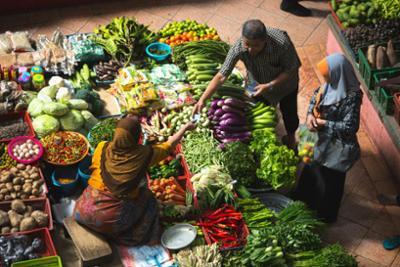

More than 250 initiatives have already been analysed for the FiturNext 2025 Challenge

The FiturNext Observatory continues to advance in the research and analysis of the 2025 Challenge dedicated to how tourism can contribute to sustainable food management
The call is still open, so register your initiative here and be part of the next edition!
Throughout these months, more than 250 proposals have been analysed, both from Europe and from other continents, such as Asia or America. Of these, 9 will remain as finalists and 3 will become the winners of the next edition of (FITUR).
The categories uncovered
All the projects analysed share the values of sustainability, reduction of food surpluses, their reuse with a circular approach, the consumption of local, Km0 and seasonal products and the responsible optimisation of agri-food resources, among other focuses. The participation of visitors, residents and public and private promoters is key to promoting local gastronomy as a source of sustainability.
The research has been structured according to the following categories:
- Destinations and other territories. Gastronomy plays a key role in attracting visitors to a destination and promoting it. Therefore, promoting good practices in sustainable gastronomy with policies and actions that transform and boost the sector is part of the process.
Among the 250 initiatives analysed, the Observatory has identified initiatives that arise from agreements between the different actors in the food system in tourism, sharing objectives and proposals that contribute to inspiring other agents in the sector, the sustainable positioning of the territory and the promotion of new public policies that challenge the challenge of food waste.
- Horeca and transport sector. The gastronomic offer of a destination is crucial, as is its policy of reduction and use in favour of circularity, the provision of local food and its effect on residents and visitors.
Throughout the research, good practices based on Artificial Intelligence (AI) systems have been analysed to help reduce the volume of waste, optimise available resources and provide knowledge.
- Other actors in the food value chain. The possibility of learning about sustainable products, their production methods, lifestyles and associated infrastructures helps to raise awareness of local gastronomy and share knowledge and awareness of participants in terms of food sustainability. Otros agentes de la cadena de valor de la alimentación.
Olive oil tourism, wine tourism, fish tourism and other categories of agrotourism contribute to bringing traditional and sustainable production, which is often at risk of generational change.
More than 1500 initiatives have already been analysed by FiturNext
With this sixth challenge, the Observatory has now analysed around 1,500 initiatives that address good sustainable tourism practices in their destinations that promote an industry that is more committed to the environment and the local community.
Throughout all editions, Ideas for Change, coordinators of the Observatory, and FITUR, have organised a series of webinars on past and future editions focusing on regenerative tourism, which have hosted experts and panellists from the sector on gender inclusion, accessibility and the regeneration of the natural environment.



